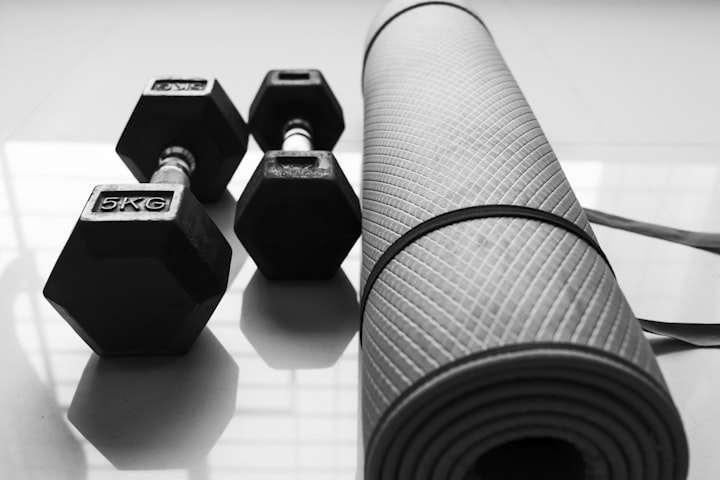10 Keto Tips for Beginners Who Want to Start Losing Weight
READ THIS ARTICLE TO LEARN MORE

10 Keto Tips for Beginners Who Want to Start Losing Weight
Are you a beginner looking to start a ketogenic diet? Keto is a powerful tool that can help you lose weight, improve your overall health, and increase your energy levels. However, if you’re just starting out, it can be overwhelming to know where to begin. To help you get started, here are 10 helpful tips for beginners who want to start losing weight with a keto diet. With these tips, you can confidently transition into a keto lifestyle and begin achieving your weight loss goals.
1) Start Slowly
Starting a ketogenic diet can be a big adjustment and lifestyle change. It's important to ease into the transition and start slowly so that you don't become overwhelmed. Here are a few tips to help you get started.
First, focus on eliminating processed foods and added sugars from your diet. These two things have been linked to weight gain and other health problems. This doesn't mean you have to cut out all carbs; instead, focus on eating complex carbs from whole grains, fruits, vegetables, and legumes.
Next, gradually increase your intake of healthy fats. Healthy fats such as avocados, nuts, seeds, olives, and fatty fish provide essential nutrients that your body needs to function optimally. Eating healthy fats will also help you feel fuller longer, which can help with weight loss.
2) Set Realistic Goals
When you’re starting a new diet like the keto diet, it’s important to set realistic goals. Don’t expect to drop 30 pounds in the first month—this isn’t a sustainable approach to dieting.
Instead, try setting small, achievable goals such as losing 1-2 pounds per week. This is more manageable and also gives you something tangible to work towards. A great way to do this is by tracking your progress with a food diary or exercise log.
You can also set weekly goals such as cutting out processed foods or increasing your intake of healthy fats. Once you achieve one goal, set another one and keep going until you reach your overall weight loss goal.
Setting realistic goals is the key to successful weight loss on the keto diet, so make sure to be realistic and don’t expect too much too quickly. With dedication and patience, you can reach your goals.
3) Find a Support Group
One of the best tips for starting a keto diet is to find a support group. The keto diet can be difficult to stick to, and it helps to have someone who understands the process and can provide encouragement and advice. There are many online groups and forums dedicated to people on the keto diet, and even in-person meetups. Joining a support group can give you access to people who have been on the diet for a while and can offer tips and tricks to help make your experience easier. It can also be helpful to be part of a community that can provide comfort and accountability when times get tough. So, if you’re just starting out, take some time to look for a support group that can help make the journey a little easier.
4) Get Plenty of Sleep
Getting enough sleep is an important part of any weight loss program, including the keto diet. Studies have shown that sleep deprivation can cause hormonal imbalances, which in turn can lead to overeating and difficulty losing weight. In addition, sleep deprivation can leave you feeling tired and lethargic, making it difficult to stick to your healthy eating habits.
For optimal health, the National Sleep Foundation recommends adults get seven to nine hours of sleep per night. To make sure you’re getting enough shut-eye, try to establish a regular sleep schedule, avoid stimulants like caffeine late in the day, limit electronics and screens in the bedroom, and create a calming bedtime routine. Getting plenty of restful sleep will not only improve your overall health, but also help you stay on track with your keto diet goals.
5) Drink Plenty of Water
Drinking plenty of water is an essential part of any diet, but it’s especially important for those following a keto diet. Staying hydrated is essential for health, energy, and digestion and helps to keep your body functioning properly. Water is especially important on a keto diet because it helps to flush out the toxins and excess sodium that can build up when eating high-fat foods.
It’s recommended that you drink at least two liters of water each day while following a keto diet. This can be spread throughout the day or consumed in one sitting. If you’re finding it hard to drink enough water, try adding slices of lemon or cucumber to your water, as this can make it more enjoyable. You can also try adding electrolytes to your water, such as magnesium or potassium, which can help you stay hydrated and reduce symptoms of keto flu.
6) Avoid Processed Foods
Processed foods are often high in sugar and other unhealthy additives, making them a no-go on the keto diet. Eating processed foods can not only lead to an increase in blood sugar levels, but can also cause an increase in body fat and weight gain. When shopping for food, it is best to stick to whole, unprocessed foods such as lean meats, fruits, vegetables, nuts, and seeds. Avoid anything with added sugar or high-fructose corn syrup, as these are usually packed with unhealthy calories. Additionally, look for low-carb options when selecting breads and pastas, as these can also contain lots of hidden sugars. To make sure you’re avoiding processed foods, look for labels that say “whole foods” or “natural ingredients.” By making this switch to whole foods, you’ll be taking a huge step towards reaching your health goals on the keto diet.
7) Avoid Sugar
When following the keto diet, it’s important to avoid sugars, as they can easily kick you out of ketosis. While many sweeteners are keto-friendly, it is best to minimize your intake as much as possible. Be sure to read food labels carefully to avoid added sugars. As a general rule, you should stay away from sweet drinks, processed snacks, and sugary treats.
Instead of reaching for sugar, try adding natural sweeteners such as stevia or monk fruit to your meals and snacks. You can also make healthy treats like sugar-free fudge and sugar-free ice cream with low-carb ingredients.
It is also important to be mindful of hidden sugars in foods like condiments and sauces. Many store-bought options are loaded with added sugar, so be sure to look for sugar-free options or make your own at home. With a bit of creativity and effort, it is easy to find low-sugar alternatives that are still delicious!
8) Avoid Alcohol
Alcohol consumption is strongly discouraged on a keto diet. While some forms of alcohol can fit into a keto diet in moderation, excessive drinking can lead to weight gain, reduce energy levels, and contribute to dehydration. Alcohol also contains empty calories, meaning they provide your body with little nutritional value.
When you do decide to drink, opt for lower-carb options such as light beer, wine, and spirits mixed with zero-calorie mixers like seltzer or water. If you’re craving something sweeter, try a low-carb cocktail such as a Vodka Tonic or Margarita with sugar-free mixers.
Keto dieters should also be aware that alcohol can increase cravings for high-carb foods and compromise willpower, so it’s best to save drinking for special occasions or in moderation. If you want to experience the benefits of a keto diet without having to give up alcohol altogether, start by limiting yourself to no more than two drinks per day and space them out throughout the week.
9) Eat Plenty of Healthy Fats
The keto diet is all about getting your body into a state of ketosis, which is when it begins burning fat for fuel instead of carbohydrates. Healthy fats are essential for this process and should make up the majority of your daily caloric intake. Some of the best healthy fats to include in your diet are olive oil, coconut oil, avocados, nuts, and fatty fish like salmon and tuna. These fats will help you stay full and provide your body with the essential fatty acids it needs for optimal health. Furthermore, many of these fats have anti-inflammatory properties and can help reduce inflammation throughout your body. Make sure to include a source of healthy fats in each meal to ensure you’re meeting your daily calorie goals.
10) Exercise Regularly
Exercising regularly is an important part of any weight loss plan, and the ketogenic diet is no exception. Regular physical activity helps to burn calories, build muscle, improve your mood, and reduce stress levels. It can also help you to maintain a healthy weight while on the keto diet.
When it comes to exercising on the keto diet, there are a few things to keep in mind. First, make sure that you are getting enough carbohydrates in your diet so that your body has enough energy for exercise. Secondly, focus on high-intensity interval training (HIIT) workouts as these are the most efficient way to burn fat while preserving muscle mass. Finally, if you are new to exercise, start off slowly and gradually build up your intensity and duration over time.
By exercising regularly on the keto diet, you will be able to boost your metabolism and accelerate your weight loss results. Make sure to find a workout routine that you enjoy and can stick with in order to maximize your progress. With a combination of healthy eating and regular physical activity, you’ll be well on your way to reaching your weight loss goals!
If you want to learn the no 1 way to master the keto diet click here now





Comments
There are no comments for this story
Be the first to respond and start the conversation.